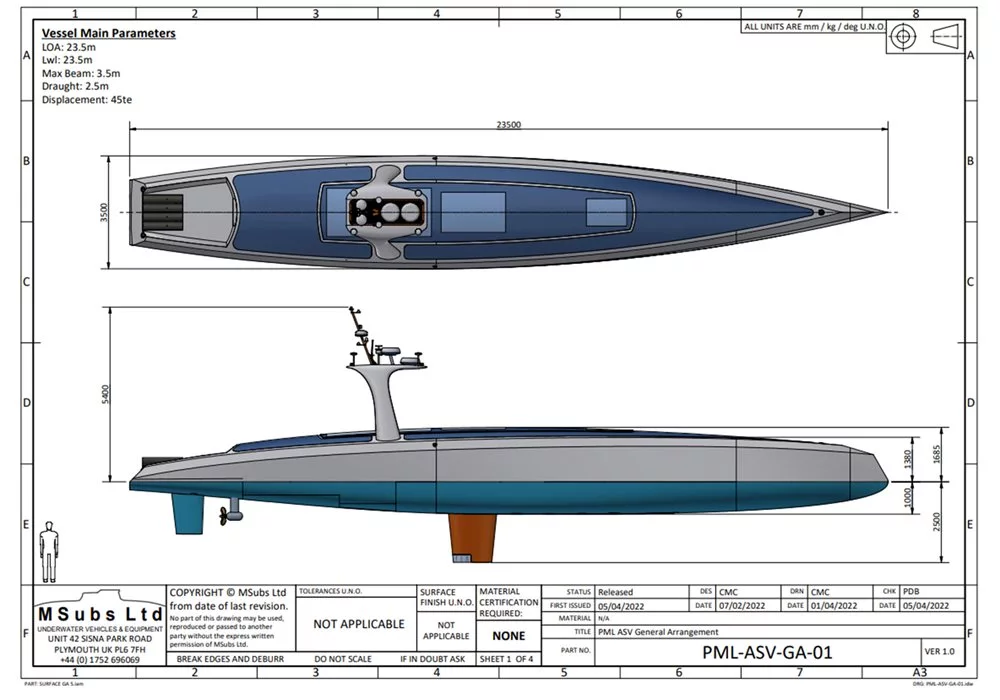It would cost a lot of money to send a boatload of marine scientists across the Atlantic Ocean, all of them conducting research along the way. That's where the Oceanus will come in, as plans call for it to make the trip and do the job without any crew aboard.
Britain's Plymouth Marine Laboratory commissioned Plymouth-based M Subs Ltd to design and build the autonomous mono-hulled vessel, supported by funding from the Natural Environment Research Council.
The project was inspired by the success of the IBM-backed Mayflower Autonomous Ship, which was also designed and built by M Subs. In fact, the Oceanus takes its name from the first child to be born aboard the original Mayflower, back in 1620.
According to Plymouth Marine Laboratory's just-released plans for the craft, the Oceanus will measure 23.5 meters long by 3.5 m wide (77 by 11.5 ft), it will be self-righting, and will be propelled by two rear-mounted pod drive motors. Those motors will be powered by a battery bank, which will in turn be charged by both a diesel-engine-driven generator and deck-integrated solar panels.
The battery bank will also power the Oceanus' numerous onboard electronic components. These will include multiple sensors for gathering oceanographic data, along with running lights, cameras, plus a multi-beam sonar and depth-sensing system.

On its initial voyage from the UK to the Falkland Islands, the AI-enabled vessel will be guided by GPS and two onboard weather stations. It will also utilize a 4G/5G module and two Satcom domes to transmit real-time data and status updates to a command center located at the Plymouth lab. The gathered data will relate to fields such as climate change, biodiversity, fisheries and biogeochemistry (the latter defined as "the study of the chemical, physical, geological, and biological processes and reactions that govern the composition of the natural environment").
There's currently no word on when construction is expected to be completed, or when the trans-Atlantic voyage will commence.
"The Oceanus will exploit the very latest in AI technology, enabling us to push the frontiers of marine science and open up new opportunities in how we monitor the ocean environment," said Icarus Allen, Chief Executive of Plymouth Marine Laboratory. "Not that long ago this would have been the stuff of science fiction fantasy, but through the design and development of the Oceanus we are really unlocking the future of ocean-going marine research."
Source: Plymouth Marine Laboratory




